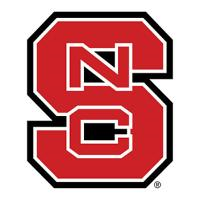What do they do?
Assemble, install, or maintain solar photovoltaic (PV) systems on roofs or other structures in compliance with site assessment and schematics. May include measuring, cutting, assembling, and bolting structural framing and solar modules. May perform minor electrical work such as current checks.
Also known as:
Installer, Photovoltaic Installation Technician (PV Installation Technician), Photovoltaic Installer (PV Installer), PV Design Technician (Photovoltaic Design Technician), Solar Designer, Solar Installer, Solar Installer Technician, Solar Photovoltaic Installer (Solar PV Installer), Solar Technician
-
51.7%
Change
Select a state to see its job growth rate ranking2,300Job Openings
Select a state to see its net job growth ranking
-
Colby Community College
Colby, KS
-
North Carolina State University at Raleigh
Raleigh, NC
-
-
Bryan University
Springfield, MO
-
Texas State Technical College
Waco, TX
Looking for colleges that offer a specific major? Use the College Match Tool to find your best-matched schools and discover your estimated Net Price!
- Doctorate or Professional Degree (2%)
- Master's degree (3%)
- Bachelor's degree (13%)
- Associate's degree (17%)
- Some college, no degree (26%)
- High school diploma equivalent (30%)
- Less than high school diploma (10%)
People in this career often know a lot about:
- Mechanical - Knowledge of machines and tools, including their designs, uses, repair, and maintenance.
- Building and Construction - Knowledge of materials, methods, and the tools involved in the construction or repair of houses, buildings, or other structures such as highways and roads.
- English Language - Knowledge of the structure and content of the English language including the meaning and spelling of words, rules of composition, and grammar.
- Design - Knowledge of design techniques, tools, and principles involved in production of precision technical plans, blueprints, drawings, and models.
- Customer and Personal Service - Knowledge of principles and processes for providing customer and personal services. This includes customer needs assessment, meeting quality standards for services, and evaluation of customer satisfaction.
- Production and Processing - Knowledge of raw materials, production processes, quality control, costs, and other techniques for maximizing the effective manufacture and distribution of goods.
People in this career often have talent in:
- Problem Sensitivity - The ability to tell when something is wrong or is likely to go wrong. It does not involve solving the problem, only recognizing that there is a problem.
- Visualization - The ability to imagine how something will look after it is moved around or when its parts are moved or rearranged.
- Near Vision - The ability to see details at close range (within a few feet of the observer).
- Information Ordering - The ability to arrange things or actions in a certain order or pattern according to a specific rule or set of rules (e.g., patterns of numbers, letters, words, pictures, mathematical operations).
People in this career often do these activities:
- Install solar energy systems.
- Apply sealants or other protective coatings.
- Determine appropriate locations for operations or installations.
- Select construction materials.
- Install electrical components, equipment, or systems.
- Determine construction project layouts.
- Review blueprints or specifications to determine work requirements.
- Inspect electrical or electronic systems for defects.
- Test electrical equipment or systems to ensure proper functioning.
- Test green technology installations to verify performance.
- Apply identification labels or tags.
- Select construction equipment.
- Create construction or installation diagrams.
- Maintain mechanical equipment.
- Record operational or environmental data.
This page includes data from:

 Occupation statistics: USDOL U.S. Bureau of Labor Statistics Occupational Employment Statistics
Occupation statistics: USDOL U.S. Bureau of Labor Statistics Occupational Employment Statistics






